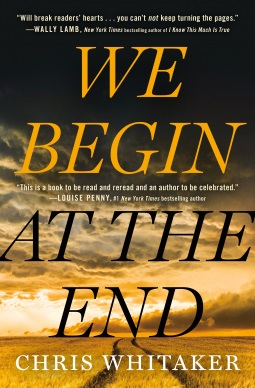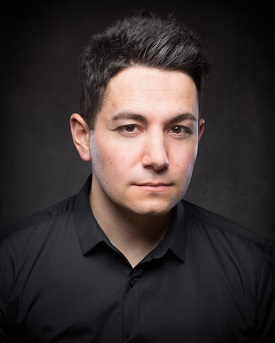 Synopsis:
Synopsis:
Walk has never left the small coastal California town where he grew up. He may have become the chief of police, but he’s still trying to heal the old wound of having given the testimony that sent his best friend, Vincent King, to prison. Now, thirty years later, Vincent is being released.
Duchess is a thirteen-year-old self-proclaimed outlaw. Her mother, Star, grew up with Walk and Vincent. Star always burned bright, but recently that light has dimmed, leaving Duchess to parent not only her mother, but her five-year-old brother, Robin. At school the other kids make fun of Duchess — her clothes are torn, her hair is a mess, and she doesn’t conform. Just let them throw their sticks . . . she’ll throw stones. Rules are for other people. She’s just trying to survive and keep her family together.
Walk is in overdrive trying to protect them, but Vincent and Star seem bent on sliding deeper into self-destruction.
A fortysomething-year-old sheriff and a thirteen-year-old girl may not seem to have a lot in common. But they both have come to expect that people will disappoint you, loved ones will leave you. If you open your heart, it will be broken.
So when trouble arrives when Vincent King returns to live in his family home, Walk and Duchess find they will be unable to do anything but usher it in, arms wide closed.
We Begin at the End is the story of people who deserve so much more than life serves them.
Review:

The third novel from Chris Whitaker, author of Tall Oaks and All the Wicked Girls is a New York Times bestseller. And deservedly so.
We Begin at the End is a heartbreaking and compelling saga about friends who grew up together in the little town of Haven Cove on the California coast. They were just ordinary kids until one tragic night changed all of their lives. And the repercussions of it are also impacting the next generation — Star’s children. Thirteen-year-old Duchess has had to grow up too soon in order to take care of her mother, who drinks too much, gets involved with the wrong men, and is unable to competently mother Duchess’s little brother, five-year-old Robin. Duchess adores Robin and makes sure he is fed, clothed, and comforted when he is frightened, which is frequently. She walks him to school and intercedes when he is bullied. Neither child has any idea as to the identity of their father.
On that horrific night, Star’s sister, seven-year-old Sissy Radley, died, and Vincent went to prison for her death. Vincent and Star were then fifteen years old, and boyfriend and girlfriend. Walker (“Walk”) was Vincent’s best friend, but his unfailing sense of right and wrong demanded that he take the stand during Vincent’s trial and testify truthfully.
As the story opens, Duchess, clutching Robin’s hand, finds Walk, who knowingly says, simply, “Your mother.” They race to the house where Star is on the couch, an empty pill bottle next to her. At the hospital, Duchess tells Walk that Star wants to die. “I can’t decide if suicide is the most selfish or selfless act.” Star survives and they return to the house Star rents from Dickie Darke, who owns a bar where the locals hang out. Their next-door neighbor is Brandon Rock, who is employed at Tallow Construction but still works out constantly in his garage, dreaming of recovering from the knee injury that ended his football hopes. He drives his father’s classic Mustang and Walk tells the just-returned Vincent, “The hair, the clothes, the guy still lives in ’78. You see, he hasn’t changed, Vin. None of us have, not really.” Milton, the butcher who can never completely shed the smell of blood, lives across the street.
Duchess is deeply angry about the way in which they live, but she does love and is protective of Star. And when she believes that Star is being mistreated, she will not tolerate it. She will seek revenge. Her temper has gotten her in trouble all of her life, but this time is different. She never gets a chance to confess to her mother what she has done because she inadvertently sets in motion yet another series of tragic events that put her and Robin in danger.
As a result, she and Robin come to know Hal, the grandfather they had never previously met — Star’s widowed father who lives on a ranch in Montana. He is a man of quiet strength who lives with the pain of losing his family, and knows exactly how to handle Duchess’s anger, gradually breaking down her defenses. It is Hal who tells Duchess, “We begin at the end” when explaining about the choices he has made in his life. But catastrophe strikes again. Duchess and Robin are placed in a foster home where they are not permitted to interact as members of the family. The couple who are fostering them only want the money they receive for doing so. Eventually, they find themselves in a children’s home and Duchess, whose grief, anger, wisdom far beyond her years, and undiminished determination compel her to make an unspeakable decision about their future.
Whitaker has deftly found Duchess’s voice — her tone and vocabulary are believable, and Whitaker compassionately reveals the internal struggles that fuel her.
Back in Haven Cove, Walk is harboring a secret as he searches for answers. He must solve a crime for which Vincent has been — Walk is convinced — wrongly accused and prevent him from returning to prison. But Vincent won’t participate in his own defense. And he will only consent to being represented by one attorney: Martha May. She and Walk dated for three months back in high school, but things did not work out between them. Back then, she and Star were best friends. Unlike so many of their classmates, Martha left town and never looked back. Now she has a successful career as a family law attorney, focusing her practice on women who have been abused. She’s not a criminal attorney, which is what Vincent needs in order to avoid the death penalty. Eventually, Walk wears her down and she agrees to help. As Walk continues investigating, he and Martha have a chance to finally talk about what happened when they were teenagers.
Each of Whitaker’s characters is fully developed, complex, and compelling. Whitaker demonstrates the myriad ways in which the adults’ lives have been entwined since they were children and the ways their relationships have, in most instances, never changed. They’ve stayed in the same little town where everyone is acquainted and their personalities, formed so many years earlier, have also stayed the same, even though several of them have secrets that the others would never guess.
As the story progresses, Duchess and Robin find their circumstances getting worse and worse, and Whitaker heartbreakingly portrays their reactions to their plight. Robin, so young, naive, and hopeful, clings to and relies on Duchess for all of his needs, but wants and still believes that it is possible for them to find a loving, forever home and family. He has nightmares, though, and cannot recall what happened on one particularly horrifying night. No one is sure what, if anything, he witnessed because he cannot remember any of the details. Duchess, hardened by what she has endured, no longer believes in happy endings but will do anything necessary to ensure that Robin has the chance to realize his dream. Even if it is the hardest thing imaginable . . . and breaks her.
Whitaker convincingly illustrates life in a small town and the demons that haunt Walk, a man who is principled, committed to his career in law enforcement and the values undergirding it, but also unyieldingly loyal to his friends, especially Vincent. As boys, they were so close that they were like brothers. And he will work tirelessly, at the risk of his own health and well-being, to prove that he has not misjudged Vincent’s character. Even when Vincent, a man has spent the bulk of this life consumed with guilt about the mistake he made thirty years ago, refuses to make any effort to save himself.
We Begin at the End is an utterly consuming, absorbing story that will leave readers heartbroken, but hopeful, and richer for having gotten to know Walk, Duchess, Robin, and Whitaker’s whole impressive cast of supporting characters. Aside from being a masterfully constructed character study, We Begin at the End is also an engrossing mystery full of expertly-timed, surprising plot twists. Readers experiencing Whitaker’s evocative prose and emotionally resonant dialogue for the first time will want more after finishing the book. And hopefully, Whitaker, an extremely talented writer who resides in England and works in a library part-time, will publish another book for readers to enjoy soon.




Comments are closed.